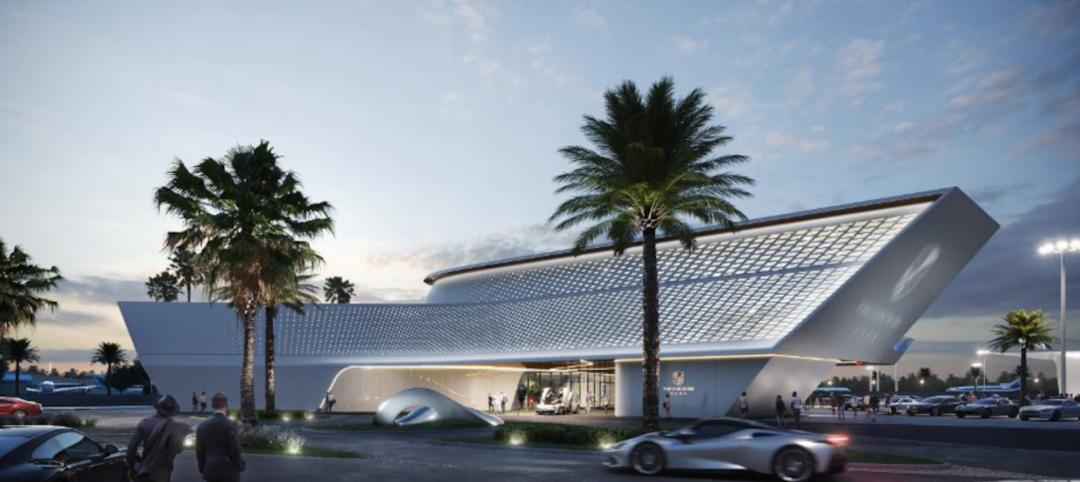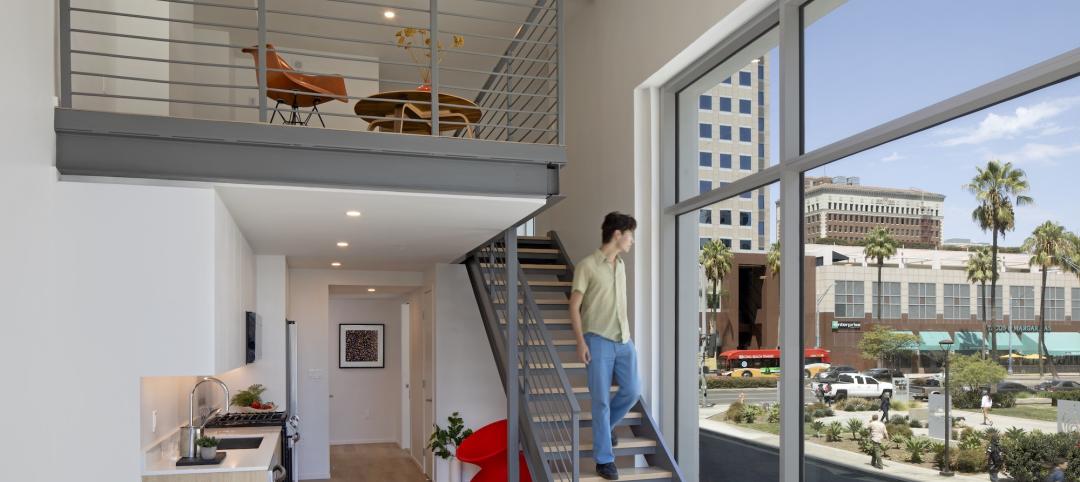Ongoing evolution in the retail industry—including near-global access to the Internet and speedy adoption rates of smartphones—is forcing retailers to create a brick-and-mortar shopping experience that rivals the convenience and immediacy of the Internet. As a result, hundreds of retailers in thousands of locations are committing capital to renovating stores for an enhanced overall customer experience.
“There is no disputing that the Internet is having a significant impact on consumer buying trends and retailer strategies,” said Steve Jones, Managing Director, JLL. “But almost 95 percent of sales continue to take place in stores, which means that as technology changes to improve customer experiences, the brick and mortar stores also must change.”
Omni-channel shopping, technology, and Big Data are shaping how retailers approach the customer experience and their consequent renovation programs. Retailers should consider these three key questions when defining the type and magnitude of renovations to enhance their customers’ experiences:
1. Are we offering an omni-channel experience?
Retailers striving to build a true omni-channel experience are merging at-home, in-store and mobile commerce into one seamless shopping experience. Customers want continuity, so the look and feel of every channel, from mobile to desktop to in-store, should be the same.
For example, AMC Theatres recently added an expanded food and beverage menu to concession stands and replaced conventional movie chairs with wide, comfortable recliners. In addition, AMC began offering guests the opportunity to buy tickets online—and reserve actual seats at the theatre—before arriving. The omni-channel experience of buying tickets online translates to a brick-and-mortar customer experience unrivalled in the entertainment industry. In fact, AMC sells more tickets with fewer seats – to sold out audiences.
2. Are we leveraging the right technology?
To keep people in their stores, smart retailers are making their locations interactive and engaging with the right technology. Tablets and smartphones can be used to promote convenience by taking customer payments rather than making them wait in line, demonstrate product features, offer more item options and encourage social sharing. In addition to tablets, the use of large displays purposefully engross customers, making them forget they’re inside a store.
“Retailers are fighting to gain and keep consumer attention, but interactive experiences rooted in technology can help combat disengagement,” said Steve Yenser, National Retail Brokerage Lead, JLL. “Technology will be crucial to the future role of the store, as today's consumers need a reason to come into a physical retail place, beyond merely making a transaction, because a transaction can take place anywhere and anytime.”
3. Are we collecting actionable data to help personalize the customer experience?
An Infogroup Targeting Solutions study found that 54 percent of marketers have already invested in data solutions to date, and nine out of 10 plan to do so in 2014. Smart retailers know that truly personalized experiences are only possible when customer information about behavior, history and whereabouts is gathered. Collecting this actionable data through customer loyalty programs, point of sale data and online shopping behavior ultimately enables retailers to implement dynamic browsing, customized displays, personalized recommendations and shopper-specific discounts.
JLL and Food Lion collected data that revealed that the grocer’s customers were increasingly focused on produce. Based on that finding, Food Lion wasted no time renovating its stores to better position its produce offerings and, in the process, enhancing the overall customer experience.
Jones notes that in addition to the renovation work completed at AMC and Food Lion, smart retailers can enhance the customer experience and ultimately maximize return on investment of store renovations with modified layouts, in-store kiosks, virtual walls, virtual dressing rooms, augmented reality and new product offerings.
“Customer experience is individual to each retailer and the clients they target,” said Jones. “It’s crucial for retailers to ask the right questions and understand the role big data, technology and the omni-channel experience play in their overarching strategy so the appropriate renovations programs can be developed.”
About JLL
JLL’s Retail Group serves as the industry’s leader in retail real estate services. The firm’s more than 850 dedicated retail experts in the Americas partner with investors and occupiers around the globe to support and shape investment and site selection strategies. Its retail specialists provide independent and expert advice to clients, backed by industry-leading research that delivers maximum value throughout the entire lifecycle of an asset or lease. The firm has more than 80 retail brokerage experts spanning 20 major markets, representing more than 100 retail clients. As the largest third party retail property manager in the United States, JLL’s retail portfolio has 305 centers, totaling 65.7 million square feet under management in regional malls, lifestyle centers, grocery-anchored centers, power centers, central business districts, transportation facilities and mixed-use projects.
For more news, videos and research from JLL’s Retail Group, please visit: www.jllretail.com
Related Stories
Mass Timber | Jan 27, 2023
How to set up your next mass timber construction project for success
XL Construction co-founder Dave Beck shares important preconstruction steps for designing and building mass timber buildings.
Sports and Recreational Facilities | Jan 26, 2023
Miami’s motorsport ‘country club’ to build sleek events center
Designed by renowned Italian design firm Pininfarina and with Revuelta as architect, The Event Campus at The Concours Club will be the first and only motorsport-based event campus located within minutes of a major metro area.
Student Housing | Jan 26, 2023
6 ways 'choice architecture' enhances student well-being in residence halls
The environments we build and inhabit shape our lives and the choices we make. NAC Architecture's Lauren Scranton shares six strategies for enhancing well-being in residence halls.
K-12 Schools | Jan 25, 2023
As gun incidents grow, schools have beefed up security significantly in recent years
Recently released federal data shows that U.S. schools have significantly raised security measures in recent years. About two-thirds of public schools now control access to school grounds—not just the building—up from about half in the 2017-18 school year.
AEC Tech Innovation | Jan 24, 2023
ConTech investment weathered last year’s shaky economy
Investment in construction technology (ConTech) hit $5.38 billion last year (less than a 1% falloff compared to 2021) from 228 deals, according to CEMEX Ventures’ estimates. The firm announced its top 50 construction technology startups of 2023.
Sports and Recreational Facilities | Jan 24, 2023
Nashville boasts the largest soccer-specific stadium in the U.S. and Canada
At 30,105 seats and 530,000 sf, GEODIS Park, which opened in 2022, is the largest soccer-specific stadium in the U.S. and Canada. Created by design firms Populous and HASTINGS in collaboration with the Metro Nashville Sports Authority, GEODIS Park serves as the home of the Nashville Soccer Club as well as a venue for performances and events.
Concrete | Jan 24, 2023
Researchers investigate ancient Roman concrete to make durable, lower carbon mortar
Researchers have turned to an ancient Roman concrete recipe to develop more durable concrete that lasts for centuries and can potentially reduce the carbon impact of the built environment.
Architects | Jan 23, 2023
PSMJ report: The fed’s wrecking ball is hitting the private construction sector
Inflation may be starting to show some signs of cooling, but the Fed isn’t backing down anytime soon and the impact is becoming more noticeable in the architecture, engineering, and construction (A/E/C) space. The overall A/E/C outlook continues a downward trend and this is driven largely by the freefall happening in key private-sector markets.
Multifamily Housing | Jan 23, 2023
Long Beach, Calif., office tower converted to market rate multifamily housing
A project to convert an underperforming mid-century office tower in Long Beach, Calif., created badly needed market rate housing with a significantly lowered carbon footprint. The adaptive reuse project, composed of 203,177 sf including parking, created 106 apartment units out of a Class B office building that had been vacant for about 10 years.
Hotel Facilities | Jan 23, 2023
U.S. hotel construction pipeline up 14% to close out 2022
At the end of 2022’s fourth quarter, the U.S. construction pipeline was up 14% by projects and 12% by rooms year-over-year, according to Lodging Econometrics.
















